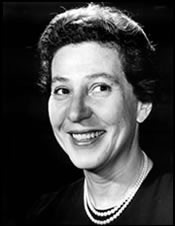
|
Compositions *** |
After the Tradition
year
1987
duration
15 minutes
instrumentation
2*2*22*, 2110, timp, perc (1), str.
commission
Bay Area Women’s Philharmonic
première
April 29, 1988, Bay Area Women’s Philharmonic, JoAnn Falletta, conductor, Berkeley, California
recording
Available on demo CD
movements
- Kaddish
- My heart’s in the East and I at the end of the West
- Hark! Jaweh causes the wilderness to dance
program notes
“Kaddish” is the traditional Hebrew prayer for the dead. This Kaddish is in memory of George Finckel, cellist and teacher. “My heart’s in the East and I at the end of the West” is from a poem by the Hebrew poet Judah Halevi, who lived in Spain in the 12th century. It has been incorporated into the liturgy. The music here is in the vocal style, its wandering melodies evoking a definite sense of poetry. “Hark! Jaweh causes the wilderness to dance” is from the 29th Psalm, and the increased activity and expanding instrumentation help to express the joyfulness of the “tradition”. The title After the Tradition is used with the kind permission of Robert Alter, the author of the book of the same title.
–Composer’s Note, with descriptive comments added by Robyn Bramhall
reviews
“…a wonderful 16-minute work in three movements …. As the title suggests, it’s a tribute to Fine’s Jewish roots, though the composer avoides any specific musical references. Nevertheless, the writing is clear and forthright, and the piece makes its points with a remarkable eloquence … In the first movement, ‘Kaddish,” Fine brings the orchestra to bear with great rhetorical force, alternating powerful brass and woodwind outbursts with restrained skitterings in the strings. In ‘My heart’s in the East and I at the end of the West’… Fine displays a rare melodic gift, beginning with a beautifully sinuous English horn solo.”
–Joshua Kosman, San Francisco Chronicle, May 2, 1988
“I was astonished to find something of Charles Ives’ innovation lurking within Vivian Fine. Ives was essentially combative in his music, while on the verge of her 75th birthday Fine remains a gentle, benign commentator. Yet Fine’s piece…lets loose softly colliding blocks of sound: a harmonious entity from the strings, a conflicting one from the winds. It’s good old polytonality, of course, but toned down from adversity to dissonance: Ives revisited. These reflections on the Jewish tradition begin with the stasis of ‘Kaddish,’ marked by long pedalpoint and the wan thud of kettle drums. An oboe solo dominates ‘My heart’s in the East and I at the end of the West,’ a segment which Fine admits is a song at heart. The closing segment, in which God makes the wilderness dance, is as lively as you might expect, with the added surprise that God has the wilderness dance not 4/4, not 3/4, but an elusive five beats to the measure. The finale is boisterous and rousing.”
-Paul Hertelendy, San Jose Mercury News, May 2, 1988
audio files